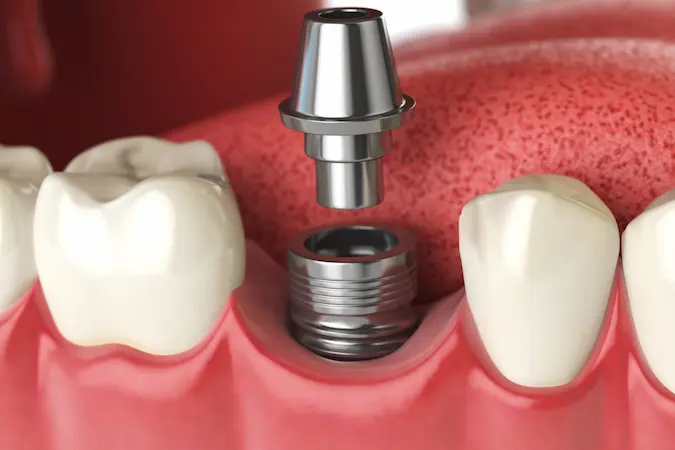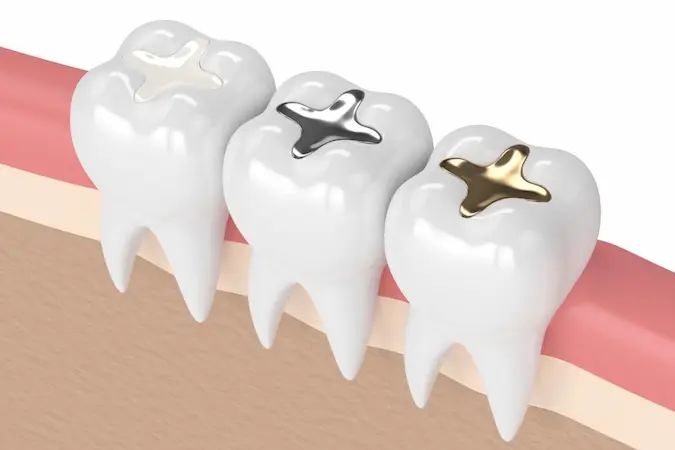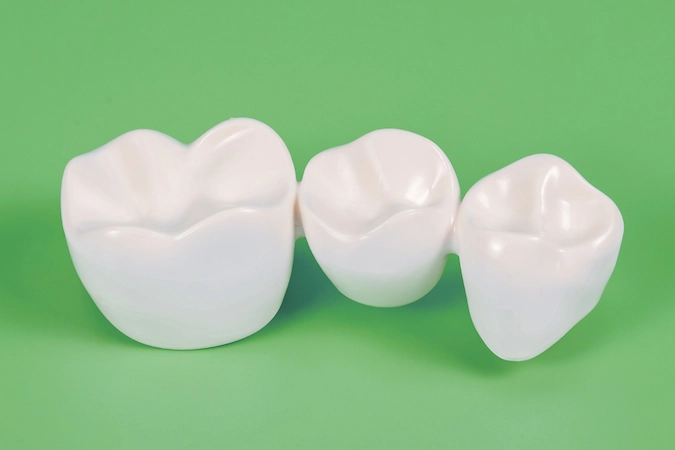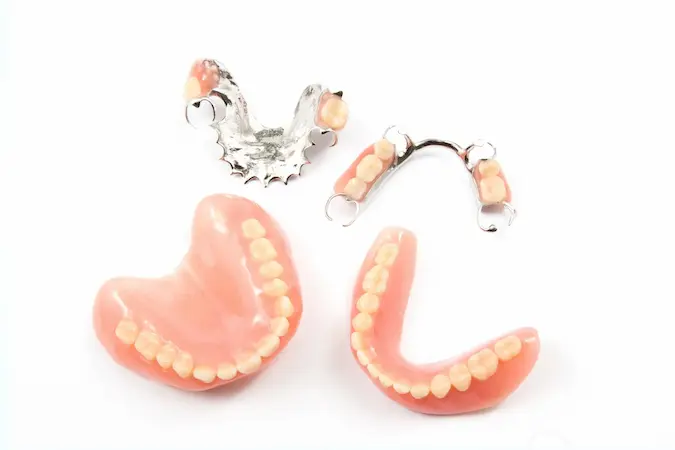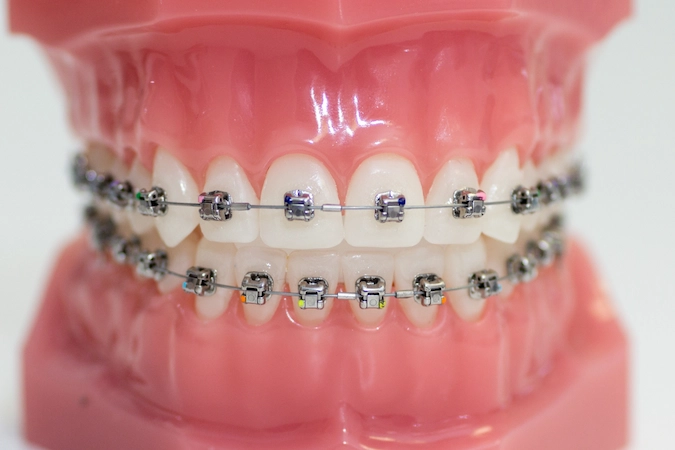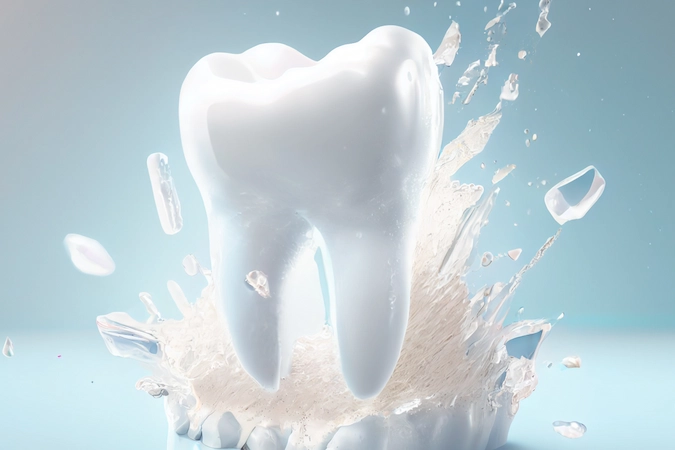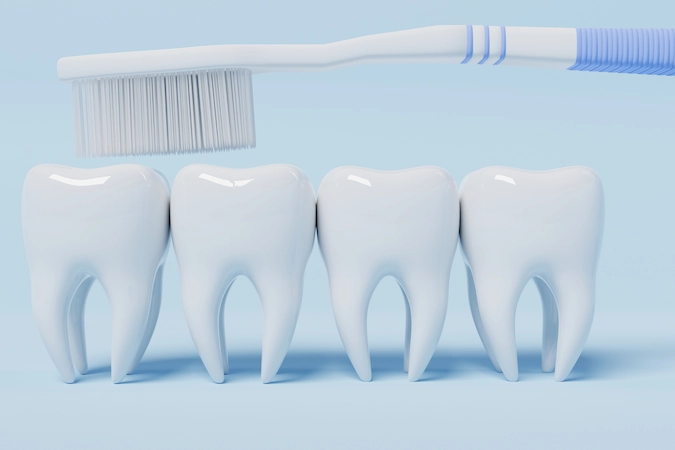Dentra
Preventive Dentistry
Preventive dentistry focuses on maintaining oral health from pregnancy to adulthood, preventing decay, gum disease, and misalignment through proper care and regular dental visits.
Intrauterine Preventive Dentistry
For The Fetus:
- - Teeth start their development between the third and sixth months of pregnancy.
- - The mother should avoid medications that might negatively affect the primary teeth development, calcium deposition, or discoloration.
- - The mother's diet should be monitored during the nine months of pregnancy, as it affects the development of her unborn child (including teeth development).
For The Mother:
- - Mothers may be inclined to snack between meals. Such practice should be limited as it may cause tooth decay.
- - Gum inflammation may occur during pregnancy due to increased progesterone levels. This condition is called Pregnancy Gingivitis and will most likely fade after delivery. However, to avoid complications, dental care is required.
Childhood Preventive Dentistry
Primary (baby) teeth begin to show within six months to a year of birth. Those teeth are as important as permanent (adult) teeth, as they:
- - Help children chew, speak, and have a good-looking smile.
- - Hold space in the jaws for permanent teeth, which develop under the gums before emerging. Subsequently, a premature loss of baby teeth will result in crowded teeth and affect permanent teeth’s ability to emerge.
- - Aid in the development of face and jaw bones.
Maintaining regular visits to the dentist, especially at a young age, helps keep track of teeth development and monitor their health.
In addition, the dentist can demonstrate how to properly clean baby teeth and how to stop children from practicing bad habits such as thumb-sucking, mouth-breathing, and teeth-grinding.
Decay Prevention
Baby Bottle Decay:
A fast, destructive decay that occurs in babies’ front teeth due to improper or absent cleaning for extended periods after sweetened liquids are drunk through a bottle.
Prevention tips:
- - After each feeding, clean the baby's gums with clean, wet gauze.
- - Start brushing teeth as soon as the first tooth emerges.
- - Never allow your child to sleep with a bottle containing milk.
- - If your child needs a comforter, give him a clean pacifier (not sugary).
- - If the local water supply does not contain enough fluoride, ask Dentra for alternative ways to introduce it into the child's life.
Common Decay:
A slowly progressing decay that occurs when bacteria act on retained food, producing acid that damages the outer layers of teeth.
Tips for prevention:
- - Dentra staff can apply sealants to the surfaces of back teeth, which act as a barrier and protect the entire tooth from acids.
- - Proper oral cleaning.
- - Visit Dentra regularly, with at least one visit every six months.
- - Avoid dental psychological trauma to allow proper follow-up and treatment (especially with children).
- - Use pastes containing calcium and fluoride that Dentra provides to prevent caries from occurring in present teeth and allow proper development of erupting teeth.
Badly Aligned (Crowded) Teeth Prevention
- Avoid early loss of primary teeth, which, upon occurrence, should be followed by inserting a space maintainer. - Avoid thumb-sucking, which may cause problems with jaw-bone growth and alignment of the teeth. - Use Dentra-provided trainers, which are pre-orthodontic appliances made of rubber (colored or transparent). They apply constant pressure to the child's bone, stimulating the bone to grow, thus guiding it to a normal growth pattern.
Pre-orthodontic appliances may also help in:- Directing the teeth to a normal alignment, thus eliminating or decreasing teeth overlaps.- Eliminating bad habits, such as mouth-breathing and teeth-grinding.- Preventing caries and strengthening tooth structure.
Gum Disease Prevention
For more info, don't hesitate to contact us.

